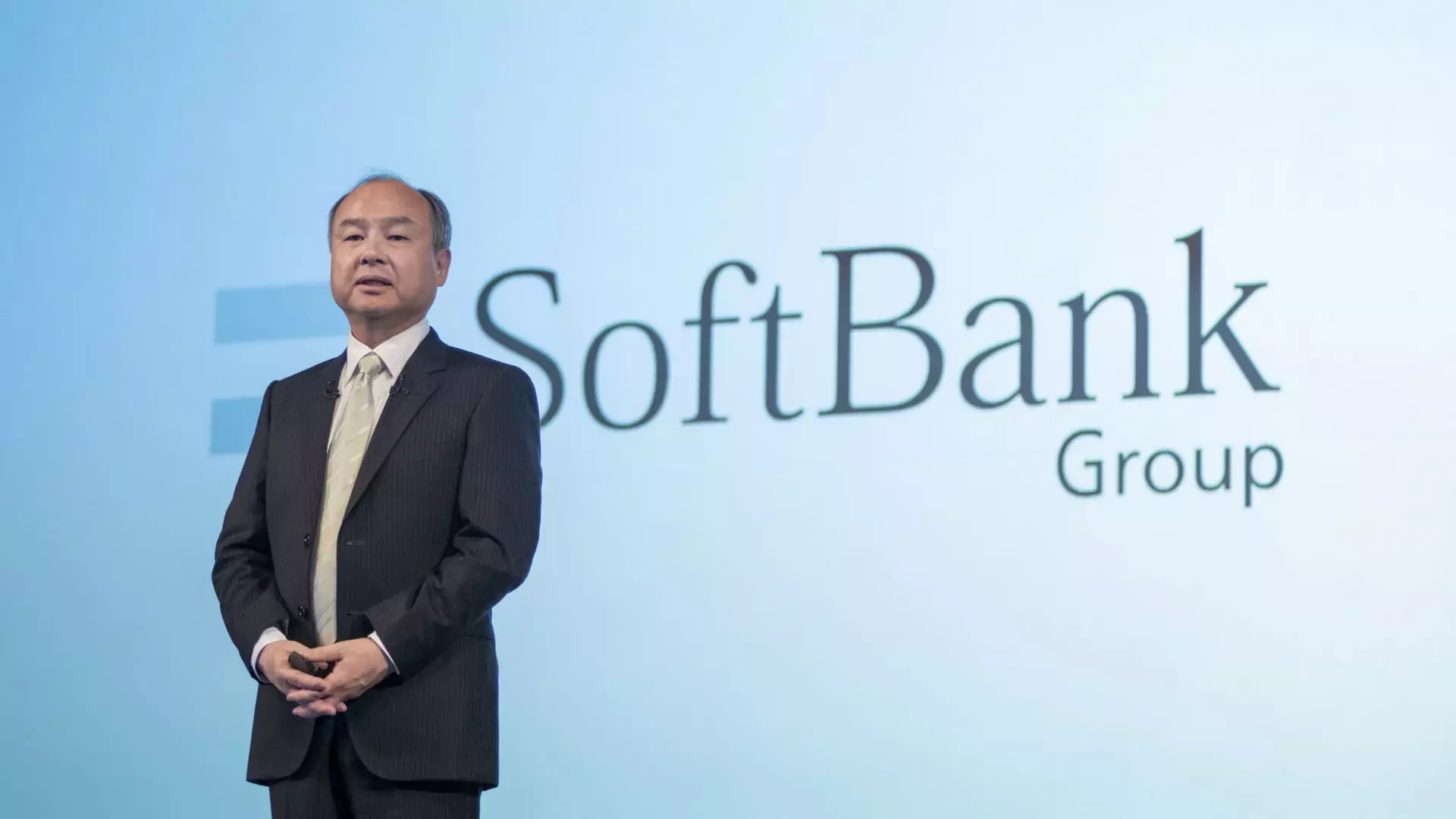SoftBank, the Japanese telecommunications and investment powerhouse, has unveiled its remarkable financial recovery in its Vision Fund, showcasing a profit in its fiscal second quarter ending September 30, 2023. This marks a significant turnaround from the previous quarter where the Vision Fund experienced notable financial distress. The reported gain of 608.5 billion yen (approximately $3.96 billion) not only highlights the effectiveness of SoftBank’s investment strategies but also underlines the volatility of the tech investment landscape. This resurgence is indicative of a growing resilience within SoftBank, suggesting that the company may have adjusted its investment tactics to weather the storms of fluctuating market conditions.
The Vision Fund, encompassing a diverse portfolio of technology investments, registered an overall gain of 373.1 billion yen during this period. This comes on the heels of a substantial loss of 204.3 billion yen in the first quarter, indicating a rollercoaster of valuation changes in the portfolio. High-value gains from notable investments, particularly in e-commerce platform Coupang and the Chinese ride-hailing service Didi Global, played a significant role in this financial rebound. Additionally, the performance of Bytedance, another key investment, contributed to the positive shift in valuations. On the flip side, Vision Fund 2 reported a considerable net loss of 232.6 billion yen, primarily driven by declining share prices in critical investments like Norwegian robotics firm AutoStore and U.S.-based Symbotic.
The Arm Holdings IPO and AI Investments
One of the standout achievements for SoftBank during this quarter was the successful IPO of Arm Holdings, a smartphone chip designer in which SoftBank holds about a 90% stake. This strategic move has proven fruitful, aligning with the increasing global demand for advanced technology solutions. Masayoshi Son, SoftBank’s CEO, has fervently positioned the company within the burgeoning artificial intelligence sector, anticipating lucrative opportunities that rival the success of Nvidia, a stalwart in the AI and chip markets. With forecasts of AI development becoming exponentially more advanced, SoftBank has announced intentions to invest $500 million in OpenAI, a significant player in the AI field, suggesting that the company is eager to stake its claim in the growing tech landscape.
Market Performance and Stock Valuations
Despite the individual fluctuations within the Vision Fund, SoftBank’s overall market performance has been robust, with net sales increasing by 6% to reach 1.77 trillion yen. The group’s financial success has been bolstered by significant investment gains, particularly from Alibaba, the Chinese retail giant, and T-Mobile, which collectively added substantial value to the company’s stock. Notably, SoftBank’s Tokyo-listed shares have skyrocketed by approximately 50% this year, reflecting positively on investor sentiment and offering a glimpse at potential long-term sustainability.
Amid this financial renaissance, SoftBank faces pressure from activist investor Elliott Management, which has significant influence due to its $2 billion stake in the company. Elliott’s push for a $15 billion share buyback demonstrates the shifting dynamics in investor relations, emphasizing the need for aggressive capital management strategies to maintain support from institutional investors. In response, SoftBank unveiled plans to repurchase 6.8% of its available shares, equating to about 500 billion yen ($3.25 billion). As of the end of the second quarter, 153.8 billion yen worth of shares have already been repurchased, signaling proactive measures in addressing investor concerns.
Future Outlook Amid Economic Uncertainty
While SoftBank’s recent successes are noteworthy, the broader economic landscape in Japan raises important considerations for its future trajectory. The country has been grappling with fluctuating market conditions, particularly amid shifts in monetary policy that target low interest rates. Analysts from Barclays caution against complacency, indicating that wage growth is progressing, yet economic stability remains elusive. As Japan looks ahead, the potential for further interest rate hikes and market-induced volatility may continue to challenge SoftBank’s ambitious growth plans, necessitating an adaptive and resilient investment strategy.
SoftBank’s latest financial performance illustrates a remarkable recovery while simultaneously highlighting the inherent risks and uncertainties of the technology investment realm. As the company diversifies its investments and targets emerging opportunities in AI, it faces the continuous need to balance innovation with sound financial management.

